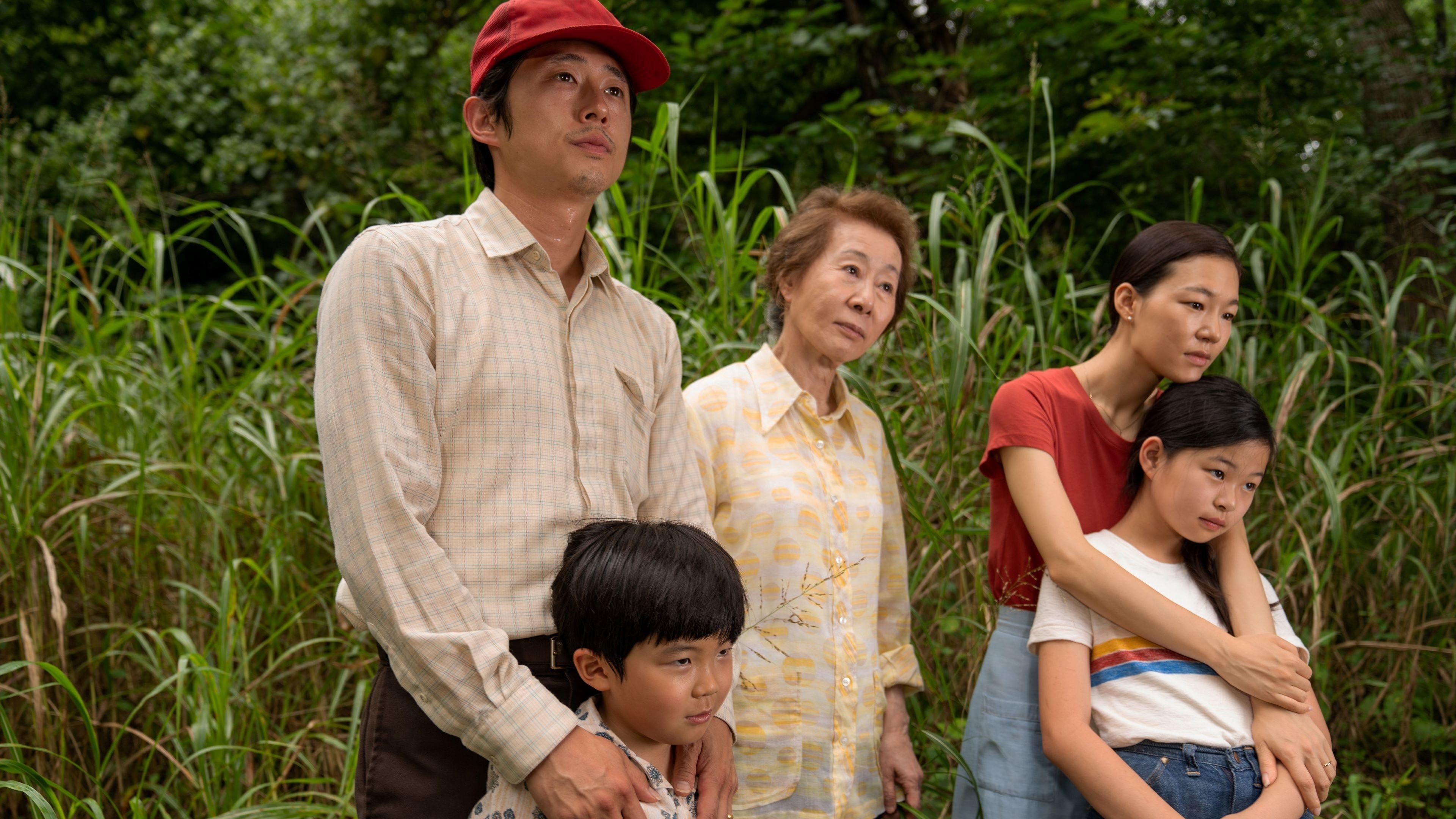Minari
Feb 21, 2022 - 19:30 - Corn Exchange
- Director: Lee Isaac Chung
- Year: 2021
- Country: USA
- Run Time: 115 mins
- Ratings
- A: 23
- B: 38
- C: 18
- D: 4
- E: 1
- Overall: 73

Lee Isaac Chung’s Oscar-nominated tale of a Korean family putting down roots in 1980s Arkansas beautifully balances the feelgood and the gritty. The title of writer-director Lee Isaac Chung’s enchanting film about a Korean family making a new start in rural 80s Arkansas refers to the tenacious edible plant that we see taking root and flourishing by a shady creek. “It’s a poetic plant,” Chung has said, not least because it “will grow very strongly in its second season, after it’s died and come back”. That theme of death and rebirth runs throughout Chung’s drama, inspired by his own family history (the minari used onscreen actually came from his father’s crop in Kansas City) and boosted by terrific performances, glowing visuals and a wonderful musical score. Steven Yeun and Yeri Han are Jacob and Monica Yi, an immigrant Korean couple who relocate from California to a large plot in the Ozarks with “the best dirt in America”. For Jacob, it’s his dream – the chance to escape the monotony of sexing chickens for a living and to make something of himself. Monica is more sceptical, appalled by the leaky mobile home into which this reckless venture has placed them. A farming novice, her husband must learn the ropes from scratch, aided only by their eccentric neighbour Paul (Will Patton), a Korean-war veteran and religious fanatic who speaks in tongues, performs makeshift exorcisms and spends his Sundays dragging a cross up the local highway. Adding to Monica’s anxieties is the fact that their young son, David (Alan S Kim), has a heart problem and has been told to avoid stress or exertion on pain of death. So Monica’s mother, Soonja (scene-stealing Korean screen veteran Yuh-jung Youn), comes to live with the family, greeted initially with disdain by David, who thinks she “smells like Korea”, but inevitably recognised as the catalyst for healing and redemption. From the moment Jacob turns his nose up at the services of a water diviner who has seen others try and fail to work this land, it’s clear that faith will be a central theme of Chung’s movie. Indeed, with its invocations of the Garden of Eden, biblical storms, prayers for miraculous healing, and even a Forrest Gump-inflected finale, Minari is littered with the kind of trial-by-fire tests and everyday spirituality beloved of Oscar best picture contenders. Yet what makes this more than just another formulaic feelgood film is the grit with which Chung evokes the hardscrabble lives of his characters, balancing the dreamier elements of the drama with a naturalism that keeps it rooted in reality. Early on, David learns what happens to the “discarded” male chicks at the poultry plant where his parents work, and is told the importance of making yourself “useful” – or else. Later, the toll that this American life has taken upon Jacob and Monica’s marriage is heartbreakingly tangible, with Han’s expressive face telegraphing bitter doubts and conflicts long before they are explicitly voiced. When Jacob plaintively reminds Monica that “life was so difficult in Korea”, I thought I heard echoes of Ozu’s Tokyo Story. By contrast, Youn is a ball of barely contained energy, rivalling Tsai Chin’s performance in Sasie Sealy’s Lucky Grandma as the screen’s most lovably unlikely pensioner. Scenes between her and Kim crackle with an irresistible tragicomic spark that perfectly counterpoints the more down-to-earth travails of the central couple. Serving as an intermediary between the mundane and magical-realist elements, Emile Mosseri’s score blends woodwind, piano and guitar with synthesised theremin-style sounds and processed vocals to create a mood that is at once earthy and ethereal. Having elegantly scored The Last Black Man in San Francisco (and saved Miranda July’s Kajillionaire from terminal quirkiness), Mosseri provides the key to Minari’s universal appeal, conjuring a soundtrack that reminded me of Jack Nitzsche’s haunting musical-saw theme from One Flew Over the Cuckoo’s Nest – an understated symphony of sentiment and